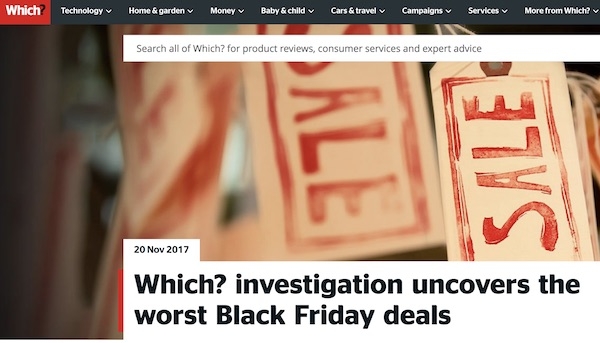
Which? warns false use of Planner designations is rife

False use of CFP and Chartered Financial Planner designations are widespread on adviser directories, a Which? investigation has found.
Nearly two in three financial advisers investigated by Which? on the most used online directory could be making false claims about their credentials, says the consumer body.
An investigation by Which? into 43 advice firms listed on unbiased.co.uk found that 27 (63%) that claimed to employ CISI-accredited Certified Financial Planners “did not have a single adviser with the relevant Chartered Institute of Securities and Investments (CISI) certification.”
Which? also discovered that 7 out of 24 firms (29%) falsely claimed Society of Later Life Advisers (SOLLA) accreditation and 14 out of 72 firms (19%) claimed to have advisers with the CII / PFS Chartered Financial Planner status, despite not employing anyone with such credentials.
Which? criticised Unbiased for doing little to address concerns previously raised in March 2016. Then Which? exposed a “near identical level of poor, misleading practice.” At the time 61% of sampled CISI-accredited advisers did not appear to actually hold such accreditation.
Although Unbiased had the highest rate of inaccurate information other directories, VouchedFor and the Money Advice Service’s (MAS) Retirement Adviser listings, also contained significant numbers of misleading records. On VouchedFor, Which? found two of the 21 advisers claiming to be Chartered Financial Planners were not actually Chartered. And neither of the two advisers it found that claimed to be accredited by the Society of Later Life Academy were listed with SOLLA.
Which? says that VouchedFor has recently introduced a ‘Checks’ tab on each adviser’s profile, which shows the date VouchedFor most recently checked the nature of the services the adviser offers. VouchedFor also said that it plans to require advisers to upload scans of their certificates.
On the MAS directory, 16% of those claiming they were CFPs, 9% of those claiming they were Chartered and 5% of those who claimed they were accredited by SOLLA did not appear to hold such accreditations. Despite the issues, Which? says that there has been a marked improvement since September 2016, when those rates were at 56%, 11%, and 33% respectively.
Which? has advised consumers to shop around and not rely on just one site.
Harry Rose, Which? Money Editor, said: “Our findings raise serious questions for the advice sector.
“Adviser directories, accrediting bodies and advisers themselves must ensure listings are correct, so consumers can confidently compare different advisers.”
Karen Barrett, CEO and founder of Unbiased, told Financial Planning Today: "Unbiased is the UK’s largest adviser database and the most checked by volume. We work continually to improve the process for verifying adviser qualifications and are committed to resolving any inaccuracies that remain. Most of these are to be found in a small proportion of the ‘Basic’ profiles that advisers can open free of charge, and such errors are typically due to qualifications expiring and not being updated, rather than inaccurate information being entered. As these profiles don’t allow direct contact through Unbiased, these are far less likely to result in issues for consumers.
"We are currently reaching out to our advisers to ask them to ensure their profiles are up-to-date and reflect their present qualifications."
Which? says it approached VouchedFor and was told that it plans to require advisers to upload scans of their certificates.
• Editor's Note: Story updated 21.11.17 to add updated comment from Karen Barrett of Unbiased.
